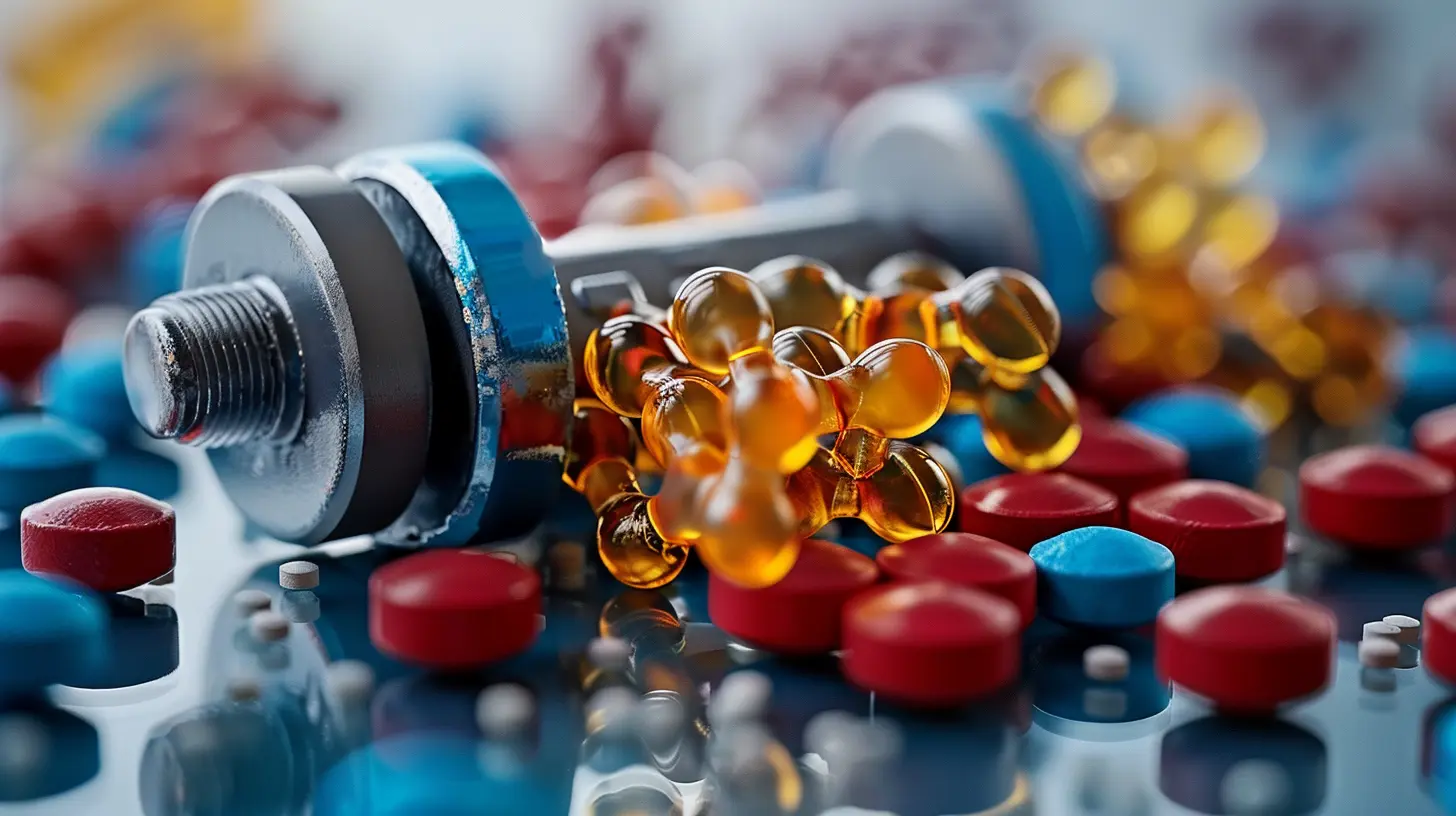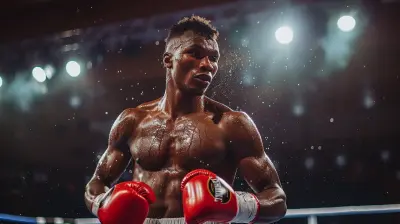Breaking Down the Science of Synthetic Hormones in Sports
5 November 2025
Let’s face it—when it comes to pushing the human body to its limits, athletes are always looking for that next edge. Whether it’s the latest training technique, high-tech sneakers, or next-level nutrition plans, sports is a battlefield of innovation. But among all the game-changing tools out there, one category sits at the intersection of science, controversy, and performance: synthetic hormones.
Now, before you picture a bodybuilder with bulging veins or an Olympic sprinter breaking records in a flash—hang on. Synthetic hormones are more than just buzzwords or clickbait headlines. They’re part of a complex web involving biology, ethics, regulations, and sometimes even criminal charges. Yeah, it gets that wild.
So, grab a snack, settle in, and let’s take a deep dive (with a snorkel of humor) into what synthetic hormones are, how they work, and why they’re such a big deal in sports.
What the Heck Are Synthetic Hormones?
Alright, let’s break it down. Hormones are like the body’s little text messages—signals that tell your organs and tissues what to do. Think of testosterone and estrogen as the OG motivational coaches in your body. They regulate everything from muscle growth to metabolism.Now, synthetic hormones? They're the lab-grown impersonators of these natural body chemicals. Imagine hiring a professional stunt double to do the job of your body's original hormone. Same message, different sender.
There are several types, but the usual suspects in sports include:
- Anabolic steroids (synthetic testosterone)
- Human Growth Hormone (HGH)
- Erythropoietin (EPO)
- Insulin-like Growth Factor (IGF-1)
Sound familiar? These are the VIPs in most performance-enhancement scandals.
Why Athletes Use Synthetic Hormones (Hint: It’s Not for Skincare)
Let’s be real—sports is competitive. Like, ultra-competitive. A split second can mean the difference between a gold medal and going home with nothing but a participation ribbon.Here’s why some athletes turn to synthetic hormones:
- Faster Muscle Growth – Who wants to bench press their way to gains for three years when a cycle of synthetic testosterone can do the trick in months?
- Boosted Endurance – With EPO, athletes can increase their red blood cell count, meaning more oxygen to those hard-working muscles.
- Shortened Recovery Time – Injuries suck. Hormones like HGH help speed up healing, so you're back in the game faster.
It’s like flipping your body’s bioengineered nitrous switch. Vroom!
The Science-y Stuff (We’ll Keep It Fun, Promise)
Okay, nerd alert! Here comes the technical breakdown—but don’t worry, I’ll keep it spicy.🧬 Anabolic Steroids = Muscle on Demand
Anabolic steroids mimic testosterone, the hormone that makes muscles grow faster. When taken in high doses, these synthetics flood your body with signals that scream, “Build muscle NOW!”But here’s the catch—it also tells your body to stop producing its own testosterone. So, once you stop using them, your hormonal system’s like, “Uhh, what do I do now?”
💉 Human Growth Hormone = The Repairman
HGH is basically your body’s repairman, coming in with its toolbox to fix tissues and grow bones. Naturally, the body produces HGH during sleep and during exercise. But when injected synthetically, it turbocharges the repair process, making athletes heal like Wolverine.But more HGH isn’t always better. Too much, and things start growing that shouldn’t grow. Like your jaw. No joke.
🩸 Erythropoietin = Oxygen Power-Up
EPO’s claim to fame? Helping your body produce more red blood cells. More red blood cells = more oxygen = more stamina. That’s why it's a favorite among cyclists and marathon runners.But here’s the problem—this isn't Mario Kart. Overdosing on EPO can make your blood as thick as syrup. Imagine trying to pump maple syrup through a straw. Yeah, bad idea.
Not All Glitz and Gains: The Risks of Going Synthetic
Let’s not sugarcoat it—messing with hormones can come with some gnarly side effects. Sure, you might get jacked or run like the wind, but you could also end up with:- Liver damage
- Heart problems
- Infertility
- Mood swings (hello, ‘roid rage!)
- Acne and hair loss
And for women? Using testosterone-based substances can lead to deepening voice, excessive hair growth, and disrupted menstrual cycles. It’s not exactly the trade-off most athletes sign up for.
Plus, the mental toll is real. The pressure to perform, the paranoia of getting caught, and the health consequences? It’s a lot to carry.
The Ethics – Is Winning Worth It?
Let’s talk morals for a sec. Picture this: You’ve trained your whole life, clean as a whistle. Then someone who’s chemically-enhanced swoops in and snags your trophy. Fair? Not in the slightest.That’s why synthetic hormone use is considered cheating in pretty much every professional sport out there. It messes with the core of what sports should be—fair competition.
But some argue it’s just science evolving. If we use technology to recover faster from injuries, why not use it to perform better? It's a slippery slope, and there's no universal agreement.
It’s the age-old debate: Should we embrace the science, or draw a hard line on enhancement?
Testing, Bans, and the Cat-and-Mouse Game
Testing for synthetic hormones is like trying to find a needle in a haystack. Athletes and their teams are smart—like, break-into-the-Pentagon smart. They know how to microdose, time their cycles, and even use masking agents.Meanwhile, anti-doping agencies are scrambling to catch up. It’s a high-stakes game of cat and mouse, with athletes staying one step ahead.
Still, the penalties can be brutal:
- Multi-year bans
- Stripped medals
- Public shame
- Sponsors dropping you like hot potatoes
So, is a temporary advantage worth permanent damage to your legacy? That’s a decision every athlete has to weigh—carefully.
Famous Cases That Rocked the Sports World
Ah yes, the scandals. The cherry on top of this hormonal sundae.- Lance Armstrong – The cycling legend allegedly relied heavily on EPO, testosterone, and blood doping. Lost all seven of his Tour de France titles. Ouch.
- Marion Jones – Olympic sprinter who admitted to using steroids and had to give back her medals. She even did jail time!
- Alex Rodriguez – Baseball icon who got caught in the Biogenesis scandal. Suspended for an entire season.
These names once had gold-plated reputations. But synthetic hormones swung the wrecking ball.
Can We Spot a Hormone User?
Sometimes. Athletes who suddenly pack on insane amounts of muscle, recover from injuries suspiciously fast, or crush their personal bests in no time tend to raise red flags.But hey, not everyone who's ripped is juicing, and not every underdog is natural either. That’s why testing and transparency are crucial.
Wait, Are There Legal Uses?
You bet. Synthetic hormones aren’t evil—they play a critical medical role. Hormone replacement therapy (HRT) helps people with hormone deficiencies live normal lives. Children with growth issues benefit from HGH. Anemia patients get EPO to increase red blood cells.The problem starts when healthy athletes use these prescriptions to turn into superhumans.
Alternatives to Hormone Use (There’s Hope Yet!)
If you're an athlete or fitness junkie thinking all the big dogs are cheating—hold up. You can still beast mode naturally.Try these instead:
- Proper Nutrition – Eating right is still your best bet. Protein, carbs, vitamins—all that jazz.
- Smart Training – Periodization, rest, and targeted workouts can naturally spike testosterone and growth hormone.
- Sleep – Like, real, consistent, glorious sleep. It boosts HGH naturally.
Remember, greatness isn’t just about muscles and medals. It’s about how you get there.
Final Whistle: The Takeaway
So, what’ve we learned? Synthetic hormones are powerful, controversial, and often misunderstood. They can turn athletes into legends or bring legends crashing down. They mess with biology, ethics, and the very meaning of fair play.While science keeps racing forward, so do the questions about what's acceptable, what’s safe, and what really matters in competition.
Are you chasing greatness—or are you just chasing shortcuts?
The finish line isn’t just about beating others—it’s about staying true to yourself.
all images in this post were generated using AI tools
Category:
DopingAuthor:

Onyx Frye
Discussion
rate this article
1 comments
Tamara McKinley
This article provides a compelling overview of synthetic hormones in sports, highlighting their physiological impacts and ethical concerns. The scientific analysis sheds light on both performance enhancement and the potential health risks, making it essential reading for athletes and sports enthusiasts alike.
November 14, 2025 at 5:15 AM

Onyx Frye
Thank you for your insightful comment! I'm glad you found the article informative and valuable for athletes and sports enthusiasts.


